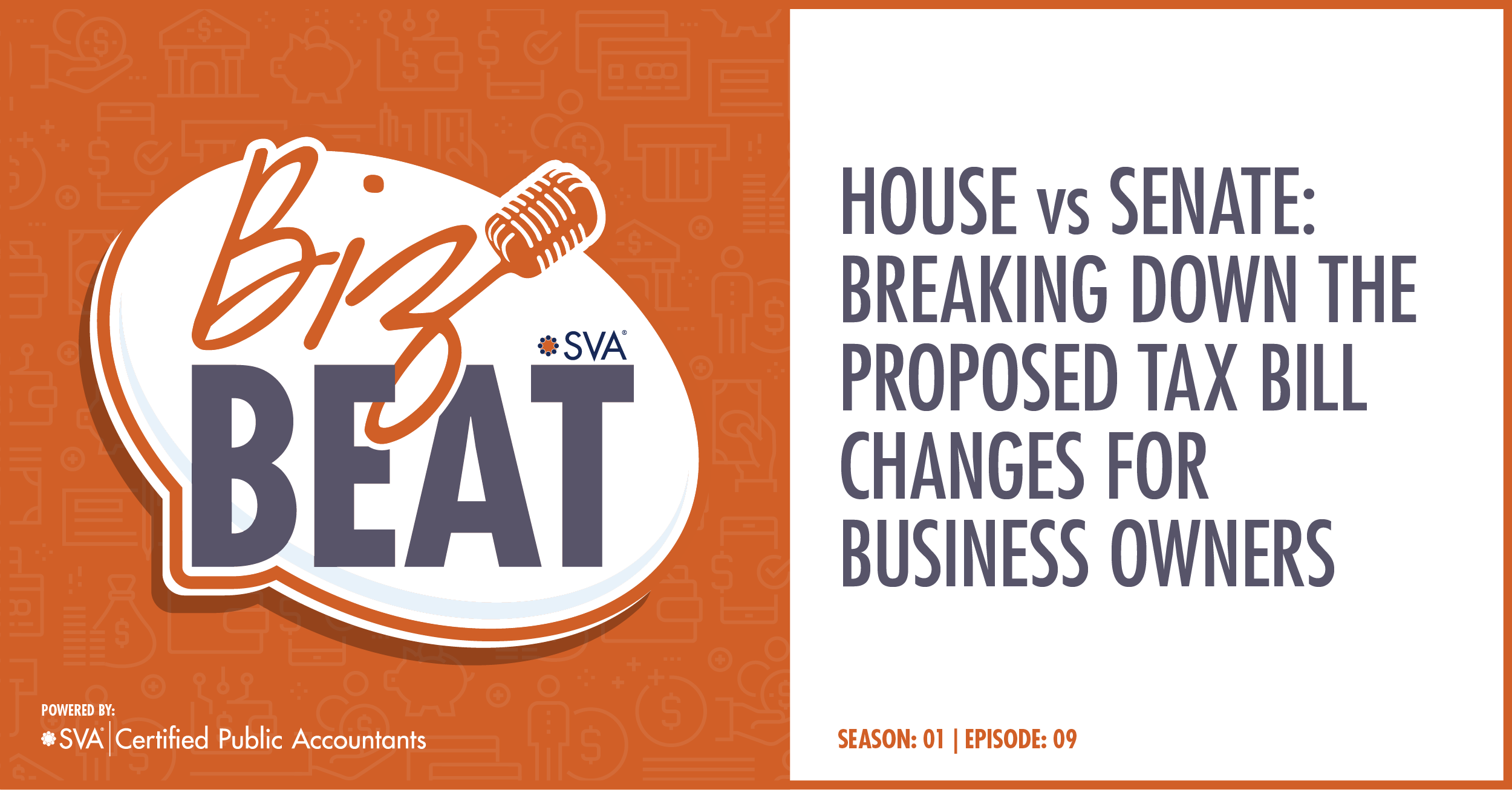A new version of the tax bill has been released by the Senate, and there’s a lot to unpack.
While the House passed its version weeks ago, the Senate’s proposal introduces changes that could impact how businesses manage R&D expenses, pass-through income, state tax deductions, and even tip and overtime exemptions.
Let’s break down the key differences and what they might mean for your business.
(Download Video Transcript)
R&D Deductions: Temporary Fix vs. Permanent Relief
The treatment of research and development (R&D) expenses is one of the most notable differences between the two bills.
| House Version |
| Allows businesses to fully deduct R&D expenses starting in 2025, but only through 2029. After that, companies would go back to amortizing those deductions over five years. |
| Senate Version |
| Offers a more generous and permanent fix, restoring immediate expensing starting in 2025 and allowing catch-up deductions for expenses incurred in 2022 through 2024. |
Both bills provide relief, but the Senate version is more favorable for companies with consistent R&D spending.
Pass-Through Income: One Offers Cut, One Doesn't
Many small businesses operate as S corporations or partnerships, so how these structures are taxed matters.
| House Version |
| Reduces the top tax rate on pass-through income from roughly 30% to about 28.5%. |
| Senate Version |
| Doesn’t include any changes here. |
Since only the House bill includes this rate cut, this provision may not survive the reconciliation process, especially if lawmakers prioritize keeping the overall deficit lower.
State and Local Tax (SALT) Deduction: A Heated Debate
The cap on how much individuals can deduct for state and local taxes has been a flashpoint since it was reduced to $10,000 in 2017.
| House Version |
| Raises the SALT cap to $40,000. |
| Senate Version |
| Keeps the cap at $10,000. |
There’s strong pressure from representatives in high-tax states like New York and California to lift the cap, which means this could become a sticking point in final negotiations.
Pass-Through Entity (PTE) Tax Elections: A Subtle But Important Shift
To work around the SALT deduction limit, many states (including Wisconsin) allow businesses to pay income taxes at the entity level, enabling a full deduction.
| House Version |
| Places new limits on which types of businesses can use this strategy, particularly professional service firms. |
| Senate Version |
| Doesn’t propose any changes. Businesses could continue to use the election as they currently do. |
For firms that rely on the PTE election to lower their taxable income, the Senate version would be the preferred outcome.
Tips and Overtime Pay: Who Gets the Break?
A high-profile campaign promise has been the exclusion of tips and overtime pay from taxable income. Here’s how each bill handles that:
| House Version |
| Exempts tips and overtime from income taxes, with some phase-outs for higher earners. |
| Senate Version |
| Also includes phase-outs and limits the deduction to $25,000. Anything over that gets taxed. |
In this case, the House bill is more generous to lower- and middle-income earners who rely on tips or extra hours.
So...Which Bill is More Business-Friendly?
If you’re looking at this purely through a business lens, the Senate version likely offers more advantages. Permanent R&D deductions, unrestricted access to PTE tax elections, and fewer limitations on deductions could help reduce tax liabilities for a broad range of businesses.
But that doesn’t mean it’s a done deal. The Senate still needs to vote on its proposal, and then both chambers must reconcile the differences before anything gets to the President’s desk.
With disagreements over deficit spending already surfacing, some provisions may be revised or dropped altogether.
What's Next?
Expect continued negotiations. Whether the final bill leans more House or Senate will depend on what lawmakers are willing to trade and what they’re willing to cut.
In the meantime, business owners should keep an eye on these developments and start thinking through how different scenarios could affect next year’s tax planning.
Want more insights like these? The Biz Beat by SVA is your weekly go-to source for practical tax and business advice.
Subscribe on Apple Podcasts, Spotify, or YouTube.
Submit questions at sva.com/bizbeat
© 2025 SVA Certified Public Accountants

